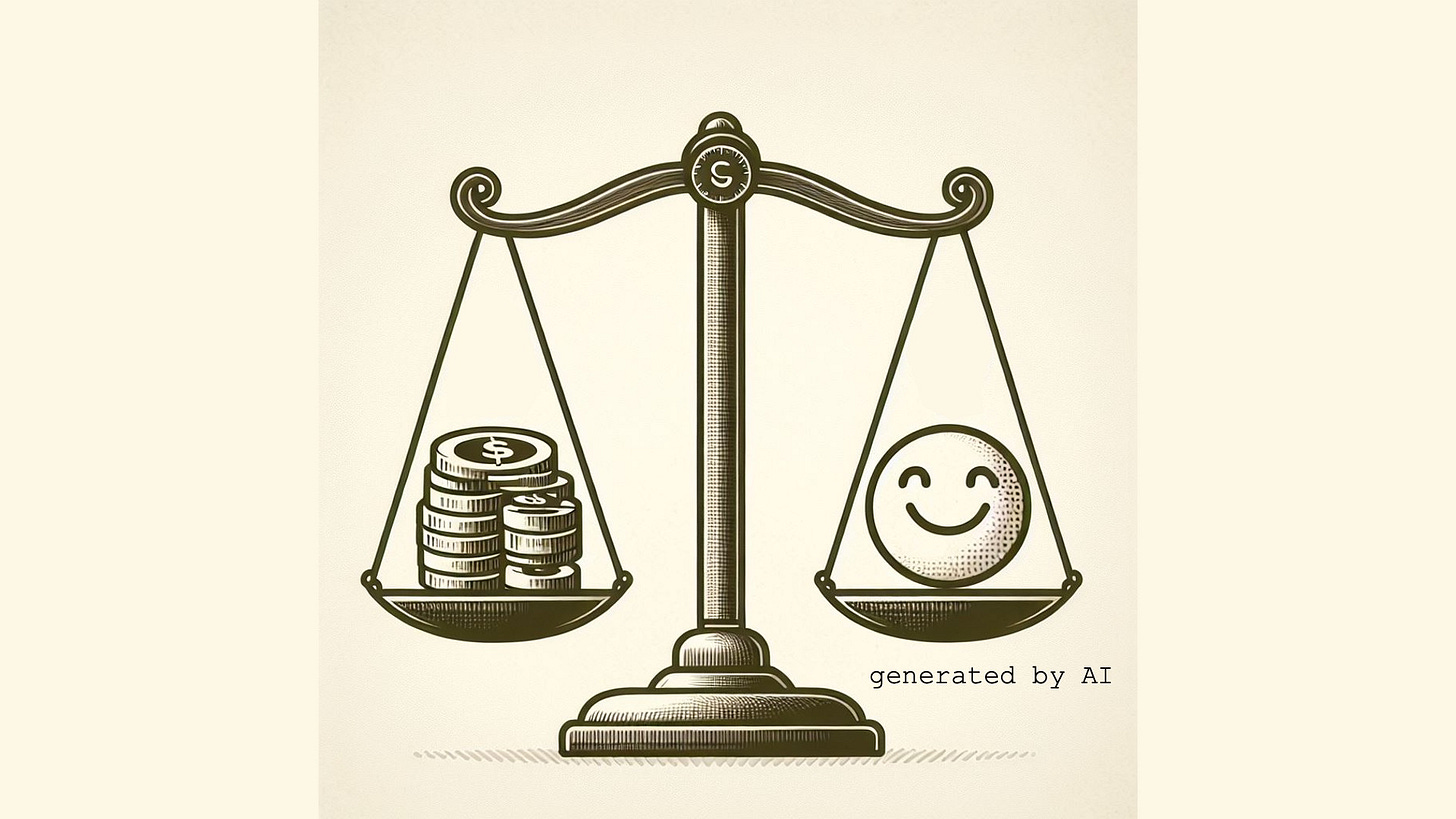A different kind of security
“The real measure of your wealth is how much you'd be worth if you lost all your money"
— Bernard Meltzer, radio host
In Wednesday’s post, I wrote about a friend of mine who has a “catastrophic” fear of losing all of his money in retirement. For some, a sense of security can come from delaying retirement just to save even more beyond the levels required by a well-designed retirement savings plan — just in case disaster strikes. In this post, I submit that working heads-down just to save more for financial security might be a worse thing to do in a disaster. There are other paths to feeling more secure.
Hyperinflation in history
Hyperinflation is used to describe situations where the prices of all goods and services rise uncontrollably over a defined time period. Probably the most documented example was 1923 in the Weimar Republic in Germany where inflation reached ten orders of magnitude, with a monthly inflation rate of 29,500% in a single month! In my parents’ lifetimes, prices rose by nearly 1,000 times (100,000%) in China from 1935 to 1949. In these and other instances of hyperinflation, the impacts on both business and society were pervasive and widespread.
There are rare stories about how some made out well in these times, including farmers with extra food bartering for tangible items, wealthy people who held onto gold, and savvy investors who utilized financial engineering to borrow, invest, and repay debts with inflated currency.
However, those rare stories in history are overwhelmed by accounts of businesses failing to adapt to rapidly changing prices, families losing all of their savings, food shortages, and a drastic decline in living standards. It is hard for economists, epidemiologists, demographers and sociologists to directly tie mortality statistics to hyperinflation, but it’s pretty clear there is a lot of suffering in these times.
Damage to human psyche
Even for those who survive hyperinflation, history has shown that hyperinflation does something completely different to our psyche as humans.
Beyond its transactional value, money plays a big role in our own psychology, as it’s a tool we use to judge our prospects of a future well-being. Once the future value of money becomes impossible to forecast, we lose our ability to plan for a future, nullifying lifelong values of both frugality and investment, in favor of satisfying current needs. Everything we’ve worked our whole lives for can become seemingly worthless and meaningless.
Those who worked longer just to save a bit more (even a lot more, say a million dollars) may find that the erosion of their savings through hyperinflation could make all that extra work just seem futile
In these situations, resilience requires that we separate our own attitudes about money from our psyches.
Identity
In Western societies, we can often define “who we are” by “what we do.” In more familiar economic conditions, one might think that a company executive has a more prestigious job than a farmer, a nurse, or a mechanic. In hyperinflationary environments, the script could flip!
Unlike those who tie their identities to their chosen careers, people who are retired have already had to redefine themselves!
Meaning
Career people can fall into the trap of defining all or part of their life’s meaning through job promotions, salary levels, or even performance reviews. Without those external points of validation, retirees take a different journey to discover life’s meaning (agency, belonging, cause). I’ve personally found that retirement has provided the space for this discovery.
Those who are able to retire and just stay working to gain a bit more security may actually be doing the opposite, as true security comes from a better understanding of life’s meaning.
Living with less
The harsh reality is that during hyperinflation, it’s everyone’s role to consume less and not to hoard. While this isn’t common to everyone’s retirement journey, I started mine by doing two stints (2018 and 2019) at a fasting clinic. It helped change my relationship with food. I now personally know that I could pretty comfortably fast for almost a month at a time.
At the same time, I’ve also learned that I can have less stuff. In an urban environment, we’re down to one car, almost never drive, and don’t use much fuel. We also use less energy after downsizing to a high-rise urban condo after decades of living in larger suburban houses. And, I have also recognized the need to get off the fast-fashion train and to simply live more sustainably with the same stuff I’ve had for years.
Working together
The key to surviving hyperinflation is to work together in a community, and relationships are key. Through hyperinflation, the psychological journey is real. It’s at these times where the ability to have compassion and empathy are most important to not only get through these changing times ourselves but to help others get through these changing times, as well.
While I’ve really valued the work friendships I’ve made in my life, I also recognize that the structure of the business environment provides its set of rules and traditions to operate within. I believe that my growing ability to communicate my feelings and needs will better serve me in changing times.
Core skills
Marsha has been our specialist in this department. Core skills have proven valuable in history during periods of hyperinflation, such as making and mending clothing, crafting, and cooking with different types of foods. Marsha has developed these skills, emanating both from her decision to be a homemaker and her mom’s influence.
The main point
I’m not trying to at all claim that I’m a “survivalist.” Instead, I’m just making an argument that we should expand our concept of security beyond the concept of simply saving more money. I believe my retirement has provided me with more ways to think about security. I hope this provides more food for thought!



